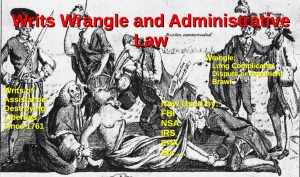I am delighted with the Trump reelection but it has been painful for me to look at the November election without stating that in the natural, there is Limited Hope for 2025. The icing on the cake regarding my research for this newsletters content was In listening to Ned Ryun on Tucker Carlson the other day (see this link.) For years you have heard me warn and comment that a functional U. S. Constitution is not to be found due to the administrative state (Shadow Government,) and that the Republic and Federalism is laid waste by the use of Madison’s and Hamilton’s theology of a consolidated ‘commerce driven’ national government, leading to new type of feudalism (see episodes on modern feudalism).
regarding my research for this newsletters content was In listening to Ned Ryun on Tucker Carlson the other day (see this link.) For years you have heard me warn and comment that a functional U. S. Constitution is not to be found due to the administrative state (Shadow Government,) and that the Republic and Federalism is laid waste by the use of Madison’s and Hamilton’s theology of a consolidated ‘commerce driven’ national government, leading to new type of feudalism (see episodes on modern feudalism).
Buckle up since this is a long read.
This theology of modern feudalism, this ‘consolidated commerce driven socialism,’1 has its believers, its vassals secure in their bureaucratic fiefdoms, acting according to the creeds of their priests, imams and shamans in how they will resist the constitutionalism of the Trump administration2 and 3 from invading their realms. This massive resistance of ‘nearly half of the bureaucrats’ resisting the will of their fellow citizens regarding those who are freely elected to govern is the encroachment, if not the demise of constitutional republicanism, but more so a lack of constitutional understanding of rights, equality4 and property5. I give you the references to the Founders’ discussions on equality and property because I do not have the time to cover them in this discussion on rights. I will cover these two principles in the next newsletter.
Back to the point
As we return to the point of Limited Hope for 2025, bear with me momentarily as I refer to quote that captures the point of those who pressed commercial national socialism and modern feudalism upon this Republic. You will see this quote again later, “Could one still speak of republican citizens when contemplating merchants, for which the “mere spot they stand on does not constitute so strong an attachment as that from which they draw their gains”? (Jefferson to Horatio Gates Spafford, 17 Mar. 1817, cited in Papers 14:221).” Continue reading



